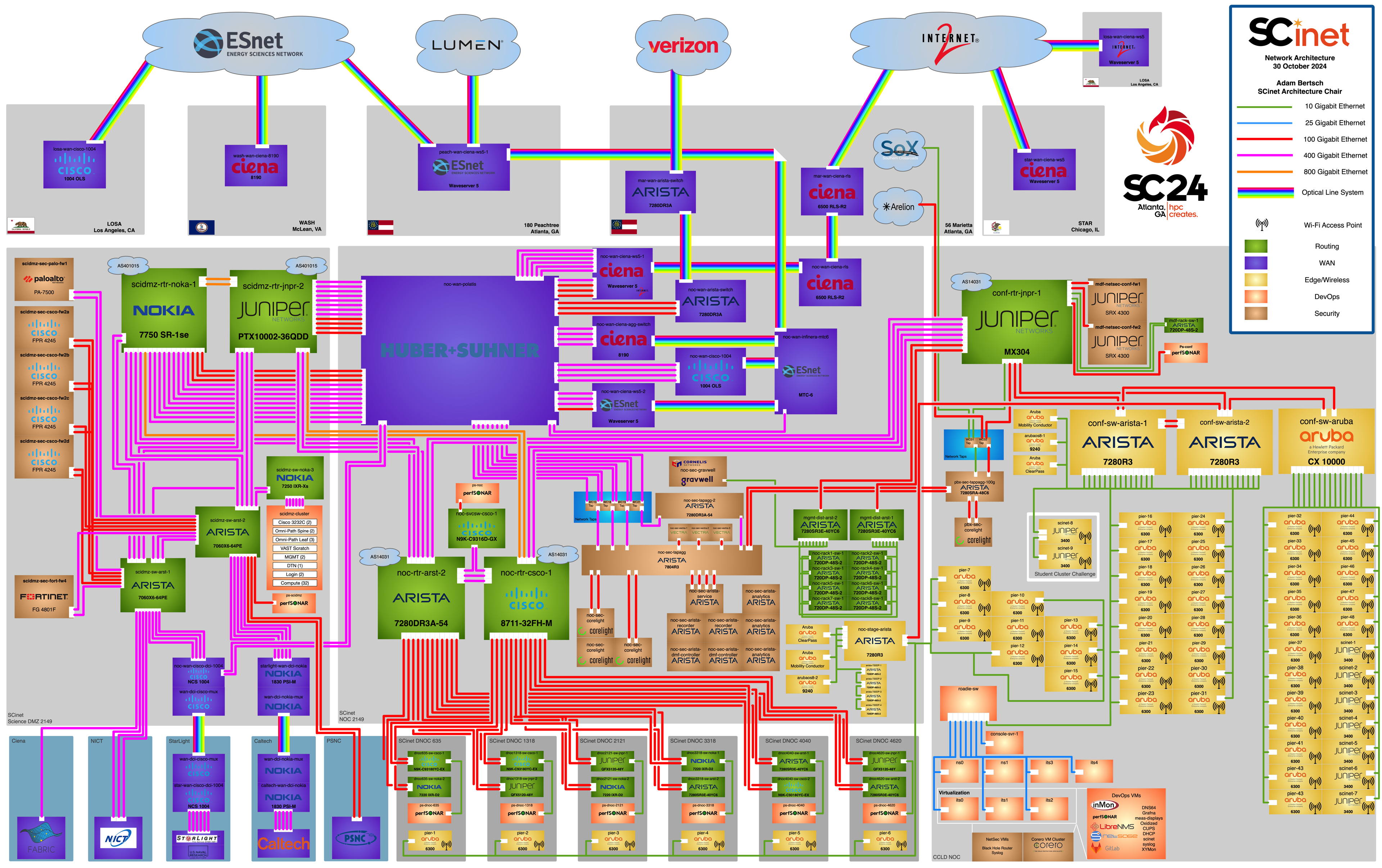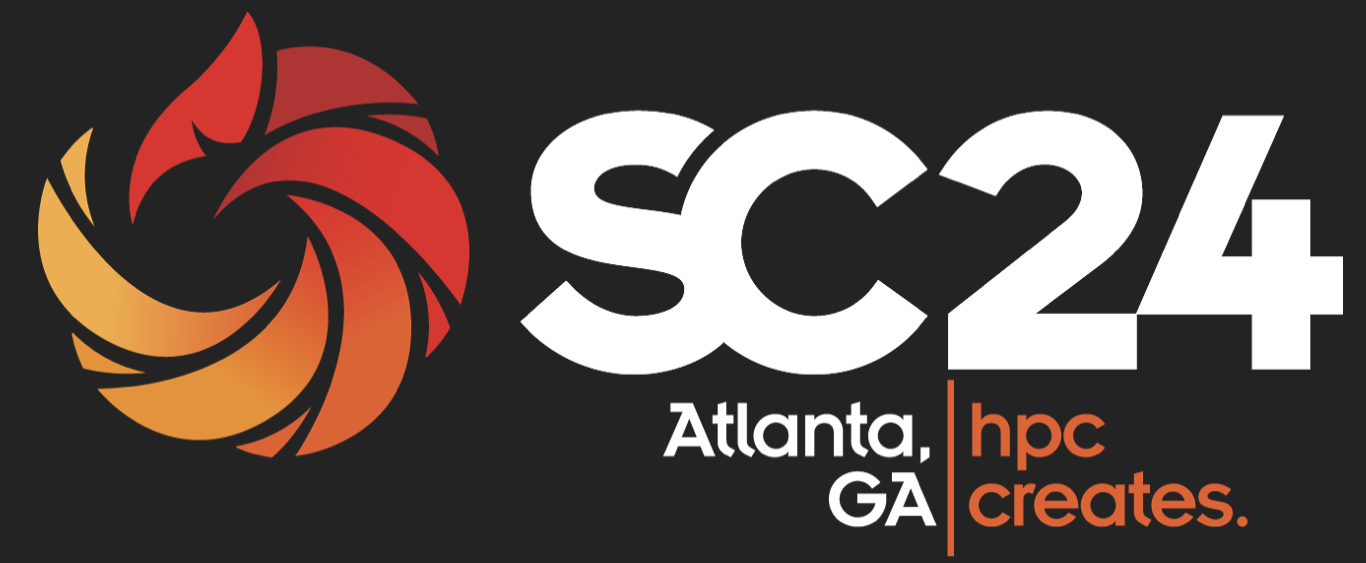SC2024 Workshop
and Technical program presentations & involvement by
UvA group members.
- The INDIS 2024: The 11th Annual
International Workshop on Innovating the Network for
Data Intensive Science - INDIS, Monday Nov 18, 9:00 -
17:30 MST in room B305
- Session Chairs
- Akbar Kara, Ciena Corporation, SCinet
- Anees Al-Najjar, Oak Ridge National Laboratory
(ORNL), SCinet
- Nik Sultana, Illinois Institute of Technology,
SCinet
- Cees de Laat, University of Amsterdam, SCinet
- Description
- The needs of science networks are rapidly
evolving. High-volume data distribution in High
Energy Physics, Astronomy, and Light-Sources is
seeing a new wave of Artificial Intelligence
(AI)-dominated research. Not only AI is driving
applications on the networks, but AI now also gets
applied in harnessing the complexity of the
networks. Potential applications of Quantum networks
and deployed network testbeds, possibly connected
with regional supercomputers, can serve the new
science demands. The proposed INDIS workshop
encourages high-end research and
state-of-the-practice papers that address one or
more of these networking needs, and developments
that are essential in the cyberinfrastructure for
the scientific discovery process. The workshop also
serves as a platform for participants in Network
Research Exhibitions, Experimental Networks of the
Future, and SCinet to submit and present papers on
their latest innovations, designs, and solutions,
and also to showcase the next generation of
networking challenges and solutions for HPC.
- Program
- INDIS presentation: "Secure Collaborative Model
Training with Dynamic Federated Learning in Multi-Domain
Environments", Anestis
Dalgkitsis, Alexandros
Koufakis, Jorrit Stutterheim, Aleandro Mifsud,
Priyanka Atwani, Leon Gommans, Cees de Laat, Chrysa
Papagianni, Ana Opresc [slides],[paper]
- SCinet Theater presentation: "Secure Collaborative
Model Training with vfl in multi-domain environments",
Anestis Dalgkitsis�Alexandros Koufakis.[slides]
|
Demo:
Microservices-based FABRIC
implementation of Collaborative Model Training
Scenario with Vertical Federated Learning.
The European Union Aviation Safety Agency (EASA)
suggests that AI-driven algorithms, combined with
fleet data, can detect engine failures early,
enabling proactive maintenance and enhancing
flight safety. The Independent Data Consortium for
Aviation (IDCA) supports data sharing to improve
these algorithms. However, issues like privacy,
intellectual property, and regulations hinder this
progress. Overcoming these challenges could lead
to safer, more reliable air travel, benefiting
society by reducing accidents and minimizing
flight disruptions.
With this paper we demonstrate how a Federated
Learning (FL)-based solution of collaborative
model training could be deployed in a multi-tenant
and multi-domain network, using microservices. The
utilized DYNAMOS middle-ware, allows third-parties
to maintain control of their data, privacy
concerns are taken into account by design, and
contractual agreements are enforced. We are
proving our solution in a transatlantic slice
(USA-NL) deployed in FABRIC, to simulate how
airlines can exchange data and collaboratively
train a model detecting engine failures.
|
DYNAMOS and FABRIC
|
SCinet
contributions, team members:
|
 |
|


